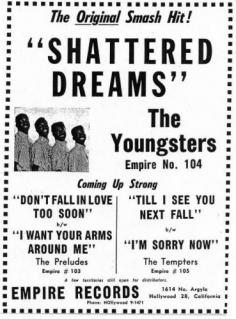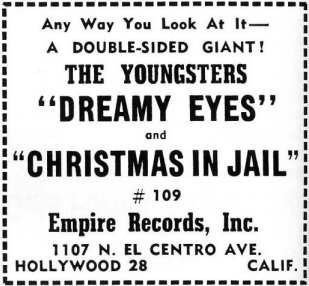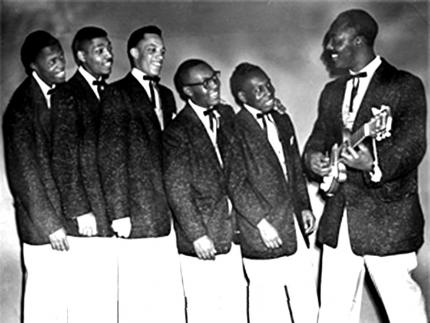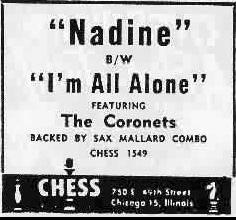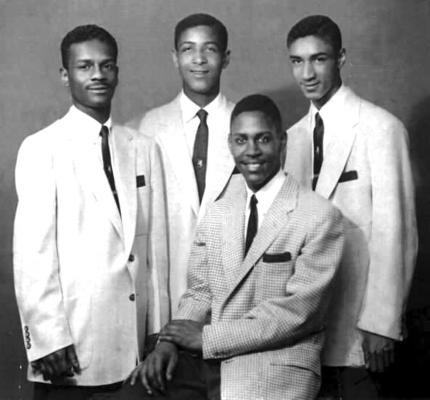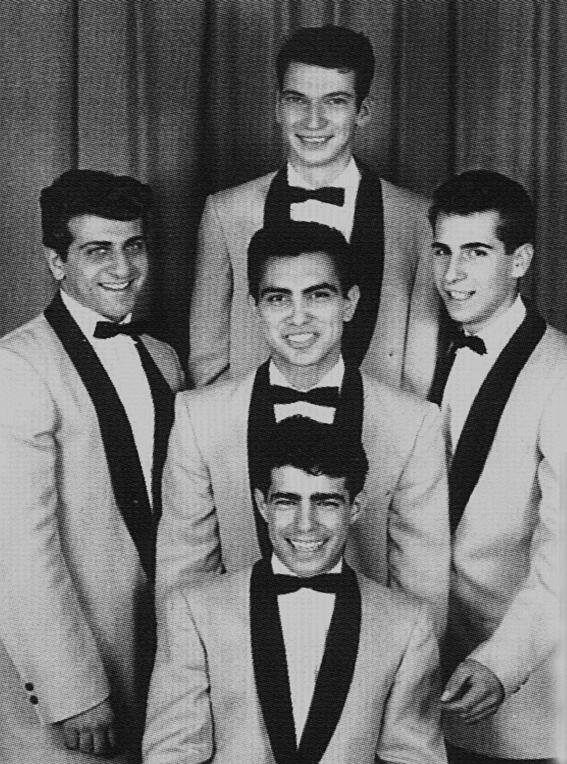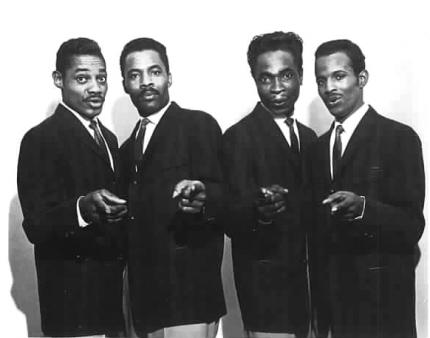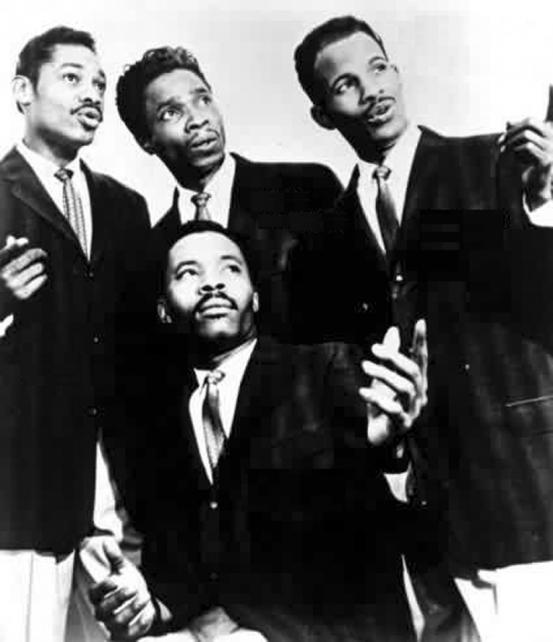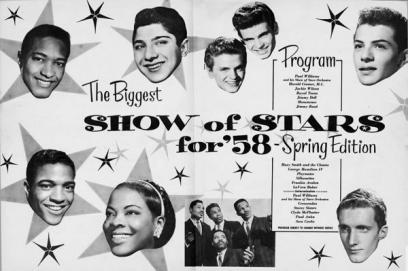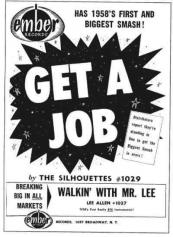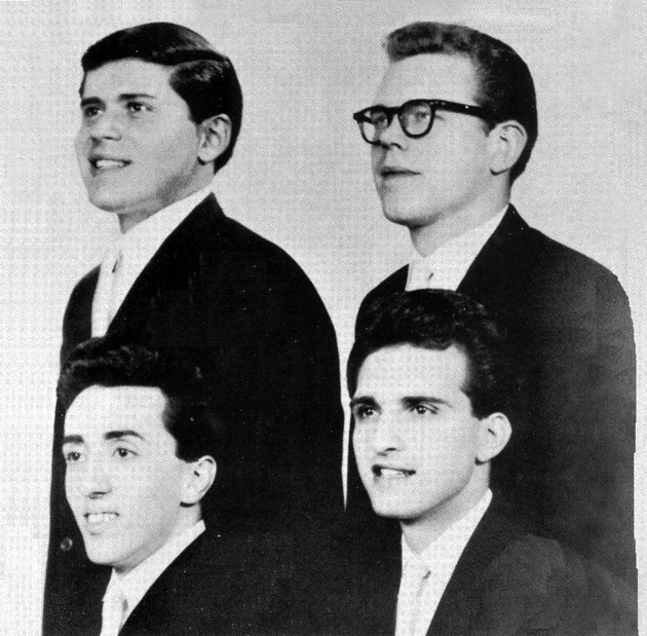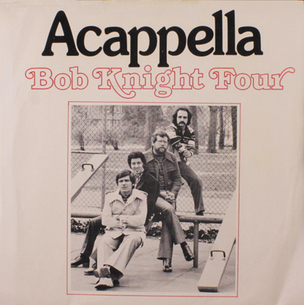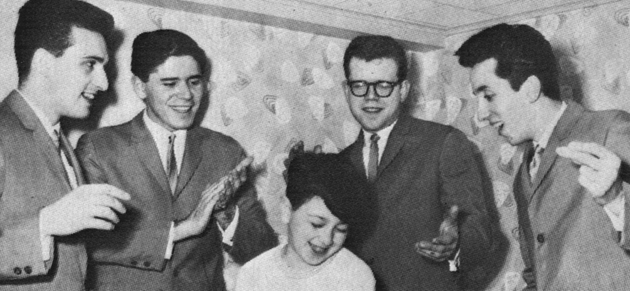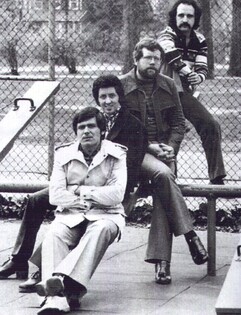
The Velvets (2) (Odessa, Texas)
Virgil Johnson (Lead)
Mark Prince (Bass)
Clarence Rigsby (Lead Tenor)
William Solomon (Baritone)
Biography:
Virgil Johnson was the lead singer of the Velvets, a vocal quintet from Odessa, West Texas. They are best remembered for their 1961 hit "Tonight (Could Be The Night)", which peaked at # 26 on the Billboard pop charts. On that song the Velvets can be heard chanting "doo-wop" behind lead singer Johnson, one of the first uses of the phrase in a song. Still, the Velvets were not really a doo-wop group. Their sound was highly polished and the backing usually included strings.

Virgil Johnson was a teacher at Blackshear Junior High School in Odessa, where he taught English to eighth grade pupils. It was at this school that he heard two students, Mark Prince and Clarence Rigby, singing as a duo. He recruited two more students, adding Robert Thursby's first tenor and William Solomon's baritone to Rigsby's tenor and Mark Prince's bass. The quintet began to perform at school sock-hops and campus functions, with Johnson as lead singer.


In 1960 they impressed Roy Orbison, who heard them whilst visiting Odessa, and recommended the group to Fred Foster, the owner of Monument Records and the producer of Roy's big hit at that time, "Only the Lonely". Foster signed the group and came up with the name The Velvets. In fact, he decided it should be the Velvets featuring Virgil Johnson because there was another group called the Velvets, years before. They had a song out called "I" on Bobby Robinson's Red Robin label.


The group's first session was held in late 1960, at Nashville's RCA studios and produced four tunes, which would be issued on their first two singles: "That Lucky Old Sun"/"Time And Again" and "Tonight (Could Be The Night)"/"Spring Fever". The two B-sides were from the pen of Roy Orbison, while "Tonight" was written by Virgil Johnson. The accompaniment came from some of Nashville's finest session players, including Boots Randolph and Floyd Cramer. After the success of "Tonight", the group's next release was "Lana"/ "Laugh", both written by Roy Orbison and Joe Melson. "We should never have put those two songs out together", says Johnson."

Part of the country was playing one side and another part of the country was playing the other side". "Laugh" stalled at # 90, but "Lana" (soon also recorded by Orbison himself) was # 1 in Japan. Monument continued putting out Velvets' singles, nine in all, until 1966. Some of them were quite good, but there were no further chart entries and the group called it a day and went back to a Texas they had never really left. Johnson kept on teaching, and in 1993, he retired from his job as principal of Lubbock's Dunbar-Struggs Junior High School, a post he had held for 25 years. In Lubbock he also was a deejay on Radio KSEL. Clarence Rigsby died in a car crash in 1978. Johnson is adamant on the reasons for the group's relatively short chart life. "You got to realise, in the early sixties there were two music markets in the US. You had a black market and you had a white market. We were extremely popular with whites, but we were never extremely popular with blacks. We were black and we didn't sound like it. People didn't know we were a black group. We couldn't tour and that really hurt us."





